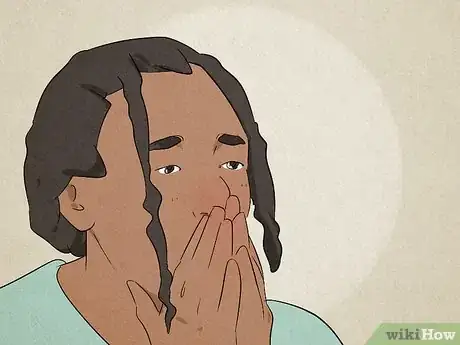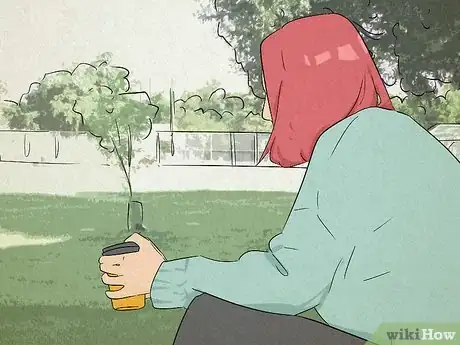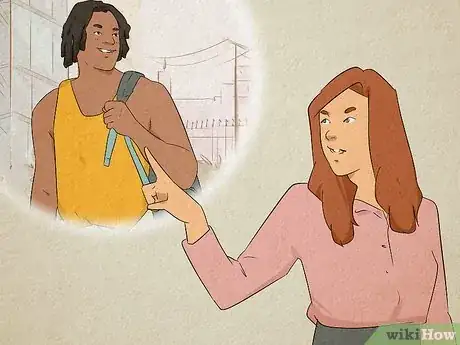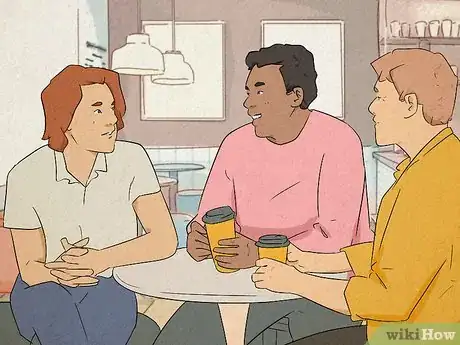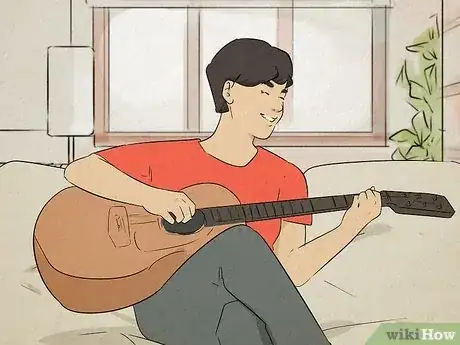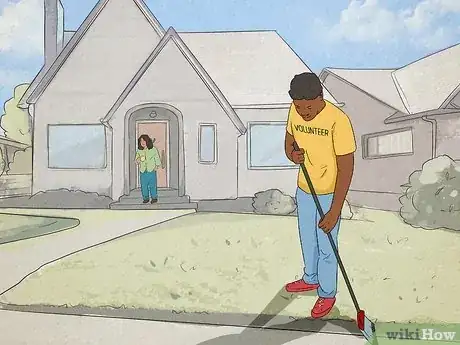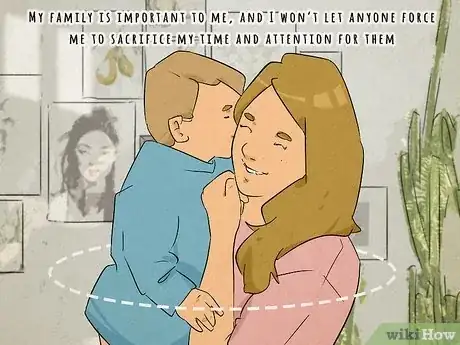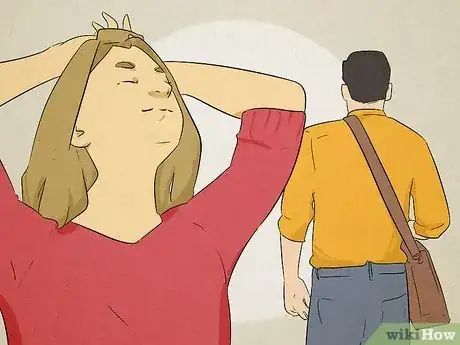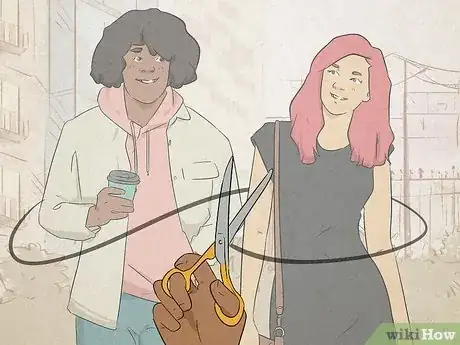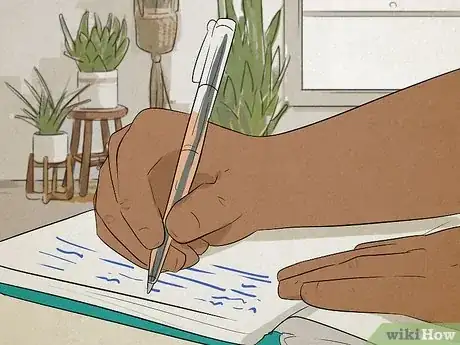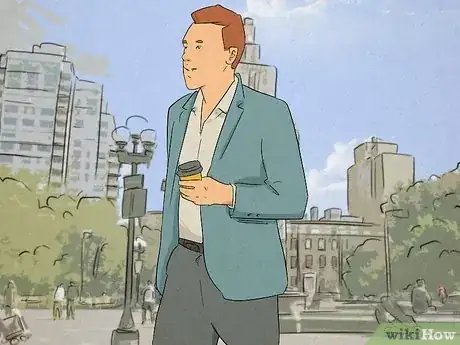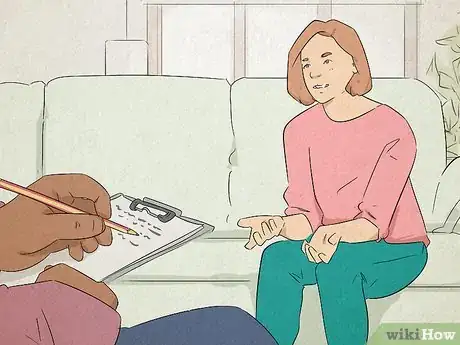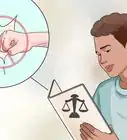This article was written by Jay Reid, LPCC and by wikiHow staff writer, Nihal Shetty. Jay Reid is a Licensed Professional Clinical Counselor (LPCC) in private practice in San Francisco, CA. He specializes in helping clients who have survived a narcissistic parent or partner. Treatment focuses upon helping clients identify and challenge self-diminishing beliefs as a result of narcissistic abuse. Jay holds a BA in Psychology from the University of Pennsylvania and an MS in Clinical Psychology from Penn State University.
This article has been viewed 18,472 times.
If you’ve been discarded by a narcissist, you’re probably feeling hurt and rejected. Relationships with narcissists tend to follow a general pattern: the early stages of the relationship are great before the narcissist begins to cut into your self-esteem, until they finally decide to throw you away completely. You don’t deserve to be treated this way. We’re here to help you recover with this guide on how to respond to being discarded by a narcissist.[1]
X
Expert Source

Licensed Professional Clinical Counselor
Expert Interview. 7 August 2020.
This article is based on an interview with our licensed professional clinical counselor, Jay Reid. Check out the full interview here.
Steps
Give yourself time to heal.
-
Time is the most important component of healing. Losing a relationship with a narcissist can be especially painful because while you were with them, you were entirely part of their orbit, and gave up your own space to appease them. Although it is often better to leave relationships with narcissists, it is also entirely normal to take time to grieve this loss.[2] X Expert Source

Licensed Psychologist Expert Interview. 6 September 2018.- Understand that it may take weeks or even months to feel better—this is all part of the healing process.
- Don’t punish yourself if you’re still feeling bad months after being discarded. Everyone heals at their own pace, but everyone does heal.
Challenge negative beliefs about yourself.
-
Consciously repair the damage that the narcissist had done. Chances are that your relationship with the narcissist has been harming you for some time, even before the discard. Remember that the narcissist’s vision of who you are is not reality. Practice challenging negative beliefs about yourself with positive statements. For example:[3] X Expert Source

Licensed Professional Clinical Counselor Expert Interview. 7 August 2020.- If you end up thinking “I’m worthless,” tell yourself “I know I have value.”
- If you think “I’m a bad partner,” remind yourself “I’ve demonstrated care in relationships all my life.”
- If you feel “I’m a terrible daughter,” say to yourself “I’ve always done my best to be good to my parents.”
Shift the blame to the narcissist.
-
Narcissists make you feel like everything is your fault, but it isn’t. Narcissists are incapable of forming relationships of mutual care and understanding, and they deflect blame onto other people. It’s okay to have hostile feelings toward a narcissist after being discarded—this is a normal response to having spent so long feeling guilty for their failures.[4] X Trustworthy Source HelpGuide Nonprofit organization dedicated to providing free, evidence-based mental health and wellness resources. Go to source
- These feelings of anger may disappear over time, but it’s better to direct that anger at the narcissist than yourself.
Spend time with friends and family.
-
Other meaningful relationships can replace the one you lost. Better yet, spending time with friends and family who are not narcissists can remind you of the best parts of relationships: the care, security, and happiness that can exist within them. Remind yourself that there is a lot of joy to be had with people who care for you.[5] X Expert Source

Licensed Professional Clinical Counselor Expert Interview. 7 August 2020.- When you’re feeling down over being discarded, call a friend or family member, or meet up with them for coffee or a hangout.
- Remember that your friends and family are there for you. Narcissists are incapable of empathy, so you might have developed a habit of hiding any pain you’re in. But most people are not narcissists, and will be glad to help you feel better.
Practice self-care.
-
A discard helps you focus on your own needs, not the narcissist’s. Making sure you’re eating and sleeping enough, as well as staying active, is important for keeping yourself emotionally strong. Be sure to spend some time every day doing things just for you—this could mean going out to a movie, working on an art project, or even just taking a long bath.[6] X Expert Source

Licensed Professional Clinical Counselor Expert Interview. 7 August 2020.- When you’re with a narcissist, you end up spending much of your time catering to their whims and trying to keep them happy. Practicing self-care is an important part of reminding yourself that your own happiness matters too.
Rebuild your confidence.
-
Building your self-esteem allows you to move on. A relationship with a narcissist can lead you to feel a lack of confidence about your abilities and strengths, so find ways to remind yourself of them. Meeting new people gives you a chance to show off your best qualities and doing activities by yourself can make you feel more independent and capable.[7] X Research source
- Volunteering is also a great way to improve your confidence and self-esteem. When we volunteer, we’re naturally reminded of our own strength and ability to care for others.
Update your boundaries.
-
Narcissists break boundaries, so take time to re-establish them. Over time, narcissists begin to ignore the boundaries that you create in order to remain independent and self-sufficient. Do an exercise where you write down what boundaries you want to maintain in your relationships, so that you can remember that these are non-negotiable to you. For example, you might have boundaries that look like:[8] X Expert Source

Licensed Professional Clinical Counselor Expert Interview. 7 August 2020.- “My family is important to me, and I won’t let anyone force me to sacrifice my time and attention for them.”
- “I won’t feel pressured into showing intimacy or affection to people when I don’t want to. I am not a bad partner for wanting my own space.”
- “I won’t sacrifice my career for the sake of keeping other people happy. I love my work, and I won’t let guilt derail me.”
Learn from this experience.
-
Even the most painful discard is a learning opportunity. Take a look back at your relationship and try to pick out the moments when the narcissist broke your boundaries or otherwise abused your trust. How did you react, and how would you like to act in the future? If you approach it in the right way, this relationship can lead you to a lot of wisdom about how you act in relationships, and how you can cultivate better ones in the future.[9] X Expert Source

Licensed Psychologist & TEDx Speaker Expert Interview. 11 April 2019.
Cut ties with the narcissist.
-
After a discard, narcissists can try to suck you back in. It’s important not to get fall back into this trap. If the narcissist is someone with whom it’s difficult to disentangle yourself (say, a parent), and you feel obligated to continue your relationship with them, do so only after you’ve rebuilt your self-esteem and have found a way to live emotionally independent of them.[10] X Expert Source

Licensed Professional Clinical Counselor Expert Interview. 7 August 2020.- Sending the narcissist a message or giving them a call letting them know that you’re not interested in continuing your relationship is okay, but you can also just slowly stop contacting them.
Reflect on your childhood.
-
If you’re attracted to narcissists, it helps to figure out why. People often get drawn to narcissists as adults because they were raised by a narcissistic parent and seek out the same kind of love in romantic partners or friends. Ask yourself how you were parented, and how it felt being around your parent. Did you feel valued and cared for, or were you always managing their whims? Having this information can help you understand yourself better, and with that understanding comes a greater sense of control over your life.[11] X Expert Source

Licensed Psychologist & TEDx Speaker Expert Interview. 11 April 2019.- Journaling is a great way of getting your thoughts out on paper. Start jotting down your thoughts about the kind of love you were raised with, and see if it leads you to new reflections.
Move forward.
-
A discard is an opportunity to live a happier life. You don’t need a narcissist in your life, and you’ll find yourself much happier without them. Good relationships require empathy, something that a narcissist can’t provide, so look for new, healthier relationships instead.[12] X Expert Source

Licensed Professional Clinical Counselor Expert Interview. 7 August 2020.- Moving on can take a lot of different forms depending on what your relationship was to a narcissist. If you were in a romantic relationship, it might look like dating other people when you’re ready. If you were in a friendship, it might mean nurturing your other friendships or creating new ones.
Work with a therapist.
-
A mental health professional can help you process your emotions. Narcissists tend to avoid therapy, but you shouldn’t. Therapists can give you a non-judgmental space to understand your relationship to the narcissist and help you heal from it. Many therapists are experienced at dealing with survivors of narcissistic abuse, and they can offer you meaningful strategies to recover.[13] X Expert Source

Licensed Professional Clinical Counselor Expert Interview. 7 August 2020.
You Might Also Like
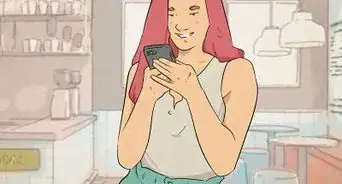 50+ Ways to Wish Someone a Bright Future & Good Luck
50+ Ways to Wish Someone a Bright Future & Good Luck

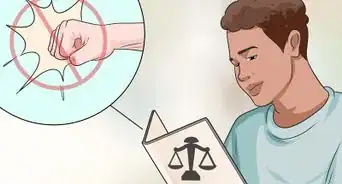


 What He Thinks When You Don't Contact Him
What He Thinks When You Don't Contact Him

 How to Manifest Love with a Specific Person
How to Manifest Love with a Specific Person





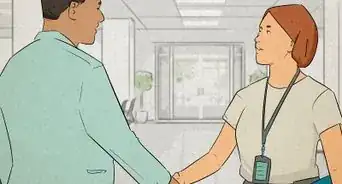 How to Know if Someone is Manifesting You: A Complete Guide
How to Know if Someone is Manifesting You: A Complete Guide
References
- ↑ Jay Reid, LPCC. Licensed Professional Clinical Counselor. Expert Interview. 7 August 2020.
- ↑ Liana Georgoulis, PsyD. Licensed Psychologist. Expert Interview. 6 September 2018.
- ↑ Jay Reid, LPCC. Licensed Professional Clinical Counselor. Expert Interview. 7 August 2020.
- ↑ https://www.helpguide.org/articles/mental-disorders/narcissistic-personality-disorder.htm
- ↑ Jay Reid, LPCC. Licensed Professional Clinical Counselor. Expert Interview. 7 August 2020.
- ↑ Jay Reid, LPCC. Licensed Professional Clinical Counselor. Expert Interview. 7 August 2020.
- ↑ https://www.psychologytoday.com/us/blog/nurturing-self-compassion/201703/8-steps-improving-your-self-esteem
- ↑ Jay Reid, LPCC. Licensed Professional Clinical Counselor. Expert Interview. 7 August 2020.
- ↑ Adam Dorsay, PsyD. Licensed Psychologist & TEDx Speaker. Expert Interview. 11 April 2019.
- ↑ Jay Reid, LPCC. Licensed Professional Clinical Counselor. Expert Interview. 7 August 2020.
- ↑ Adam Dorsay, PsyD. Licensed Psychologist & TEDx Speaker. Expert Interview. 11 April 2019.
- ↑ Jay Reid, LPCC. Licensed Professional Clinical Counselor. Expert Interview. 7 August 2020.
- ↑ Jay Reid, LPCC. Licensed Professional Clinical Counselor. Expert Interview. 7 August 2020.
About This Article

